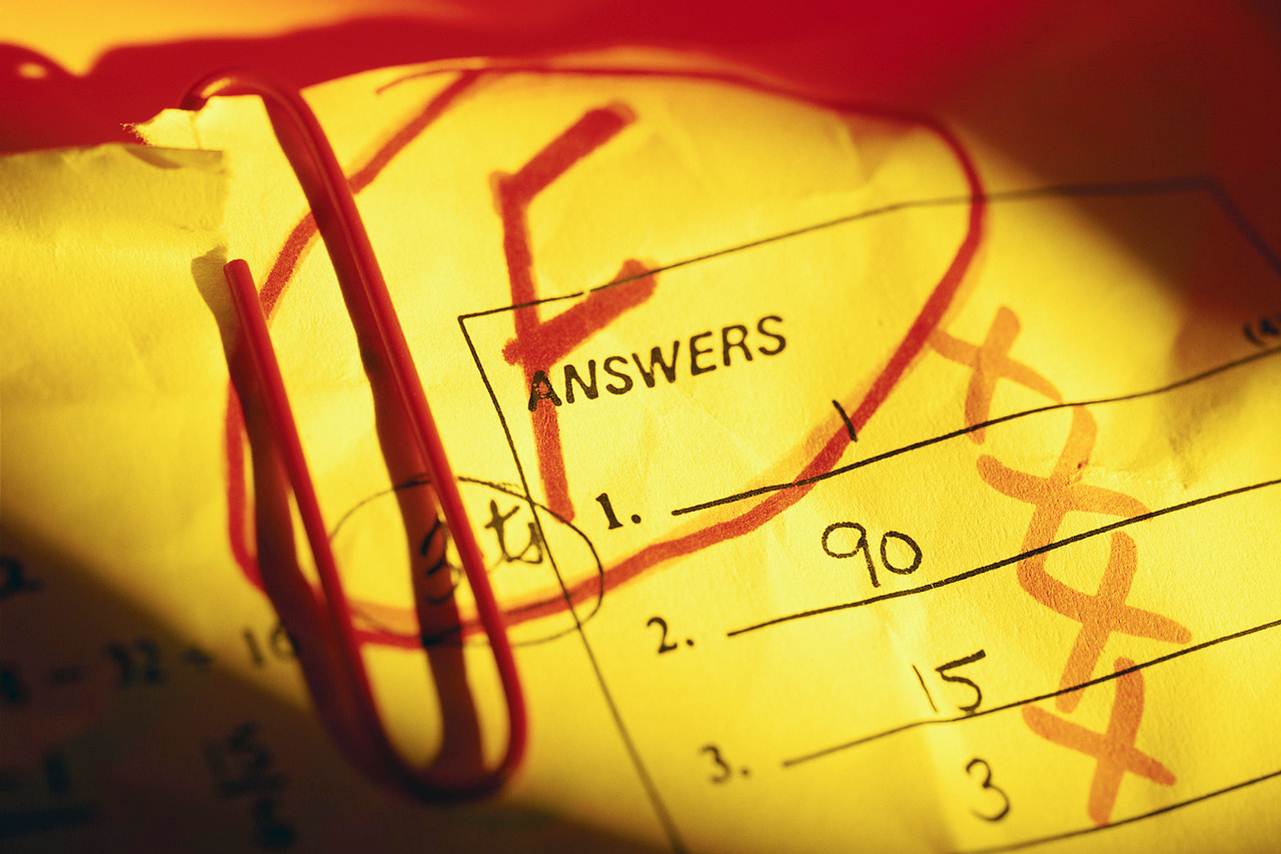Games, Fun Failure, and the Learning Process
Failure shouldn't be fatal
 There are a lot of popular articles out there that say students should be failing regularly in school and activities (just Google "failure good for kids" or something similar), that point to various studies into the benefits of failure. My conservative crotchety old windbag friends love these articles. The driving idea is that children benefit from plenty of experiences
with frustration, failure and defeat.
There are a lot of popular articles out there that say students should be failing regularly in school and activities (just Google "failure good for kids" or something similar), that point to various studies into the benefits of failure. My conservative crotchety old windbag friends love these articles. The driving idea is that children benefit from plenty of experiences
with frustration, failure and defeat.Without a doubt, this will motivate them to "pull themselves up by their bootstraps" and try even harder the next time. It will give them grit and prepare them for the "Real World". Clearly, today's students don't get enough of these experiences because we, the helicopter adults, coddle and protect them. Yada yada yada... when I was a kid, they didn't even have children! (Standard conservative crotchety old windbag diatribe)The thing is, in my experience, our students are not coddled at all. Sure, there are plenty of botched "self-esteem" initiatives out there that promote fake success in meaningless activities (everybody wins at kickball!), but when it comes to actual learning, our students are being allowed to fail in epic numbers, some of them in ways that are fatal to their education. In a previous post, I said that Kids are only motivated by failure if it isn't actually fatal. Here I hope to unpackage that statement a bit more.
We've all heard that Edison failed over 9,000 times while trying to invent the light bulb. While this is often quoted in the context of saying we need to give kids more failure experiences, this is actually reflective of the kind of failure that is good for kids. Let's look at some of the characteristics behind this oft-quoted tidbit:
- Edison was engaged in something that was meaningful to him (intrinsic motivation / problem solving / not a standardized assessment battery).
- No one told Edison he had to stop trying and move on to compact florescents after three failed attempts (sorry kids, we're done with that concept. We have to move on to the next unit).
- Edison was not labeled a failure and marginalized before he could succeed (he's just not getting this, perhaps we should find an alternate placement for him).
Maybe the problem is that the educational environment emphasizes how well students are doing rather than what they're doing: It's all about achievement! performance! results! rigor! and not about the learning itself. Educational psychologists have found that when students are induced to think about grades and test scores -- particularly, though not exclusively, when the point is to do better than everyone else -- they will naturally attempt to avoid unnecessary risks (Kohn, 2012).That's exactly what we want, isn't it? Kids who take fewer risks and are less creative overall. That will ensure our future prosperity.
Games & Fun Failure
No one likes to fail. So how is it that gamers can spend 80 percent of the time failing, and still love what they’re doing? (Nicole Larazzo)Dr. Jane McGonigal, in Reality is Broken, notes that "the right kind of failure feedback is a reward. It makes us more engaged and more optimistic about our odds of success".
 |
| Respawn & Move on. If only school were more like this. |
In games, you are constantly rewarded for your work. Failure is only temporary. Never have I had a game tell me that I've failed so spectacularly that I may not re-start or re-spawn:
I'm sorry, you have failed, please eject me and return me to your local retailer. You may not try again (said no game ever!).In fact, the way games present failure is almost as rewarding as success many times. You get to see your race car blow up or hear some comical music or get taunted by the game itself. In fact, "a team of psychologists at the M.I.N.D. Lab in Helsinki, Finland, recently confirmed... When we’re playing a well-designed game, failure doesn’t disappoint us. It makes us happy in a very particular way: excited, interested, and most of all optimistic" (Mcgonigal, 2011). Again, failure in a game often reveals another path to success. How many school assignments have any of us failed that were framed in such a way?
Grading is easy... Teaching is hard!
How do we take the success of games in the area of failure and apply it to our classrooms? For starters, we need to disconnect "failure" from failing grades. When a study says failing is good for kids, chances are, it is not talking about grades. It is talking about challenge and adversity in problem solving and investigation.
Challenge -- which carries with it a risk of failure -- is a part of learning. Finger-wagging adults who exhort students to "do their best" sometimes don't offer a persuasive reason for why a given task should be done at all, let alone well. And if the rejoinder is that it doesn't matter if the assignment is just busywork because kids need to develop "good work habits" across the board, well, a reasonable person would wonder who stands to benefit when children are taught to work hard at anything that they're assigned to do by someone with more power. (Kohn, 2012)
Actionable Goals
Good games provide a steady flow of actionable goals in environments we know are designed for our success—and they give us the chance to inject some flexible and appropriate goals into our daily lives whenever we need them most (Mcgonigal, 2011).As generally successful adults, most teachers have learned the valuable skill of breaking our monumental tasks into small actionable steps. Many of us forget, though, that we likely did not possess this skill in any considerable measure at age 12 or 15, for example. Yet, we expect our students to keep themselves on track during huge, sometimes month-long, research projects, unit studies, or writing pieces. We penalize them for losing materials, and we often discourage creativity and innovation, particularly through collaboration, on their parts along the way. It's not enough to provide a time line to help guide students. We need to check in often. This is hard work.
Every Chance of Success
It’s only fun to fail if the game is fair—and you had every chance of success.(journalist Clive Thompson)Learning is all about failure, yet our grading and promotion system stigmatizes failure and often makes it feel fatal. It's very easy for all parties involved (including students) to just score an assignment, put the grade in the book and move on. Applying something like the ABI System, mentioned in a previous post, is very difficult because it requires constant follow up, it disrupts the timeline of old-school behaviorist teaching, and it is entirely in contrast to our batch based system.
We still educate children by batches. You know, we put them through the system by age group. Why do we do that? You know, why is there this assumption that the most important thing kids have in common is how old they are? You know, it's like the most important thing about them is their date of manufacture. (Sir Ken Robinson, 2010)Like it or not, we work in a batch based system. It's difficult to truly help a student when the pressure is there to give a grade and move on. Worse, many of us have read or been taught that students should struggle through their failures (remember, failure is good for kids) with little to no guidance. After all, they would figure it out if it were one of those darn video games they play! Of course they would, but they would also call upon myriad walkthroughs forums and friends. In school parlance, they would cheat. Why do we have PLN's and our students have friends they cheat from? Further, if you're designing and assigning tasks that can be "copied" and turned in (a collection of correct answers -- aka worksheet packet), are you really promoting learning anyway? Finally, as Alfie Kohn says, "if an adult declines to step in and help when kids are frustrated, that doesn't make them more self-sufficient or self-confident: It mostly leaves them feeling less supported, less secure about their own worthiness, and more doubtful about the extent to which the parent or teacher really cares about them".



A recent tweet by Neil Degrassi Tyson:
ReplyDeleteWhen Students cheat on exams it's because our School System values grades more than Students value learning
Thanks Clint. Glad I could serve as catalyst. The article will be out next thursday and i hope you'll join me for the chat on Friday at 1. I think you've really hit the mark with this post! Looking forward to chatting :) Justin
ReplyDelete